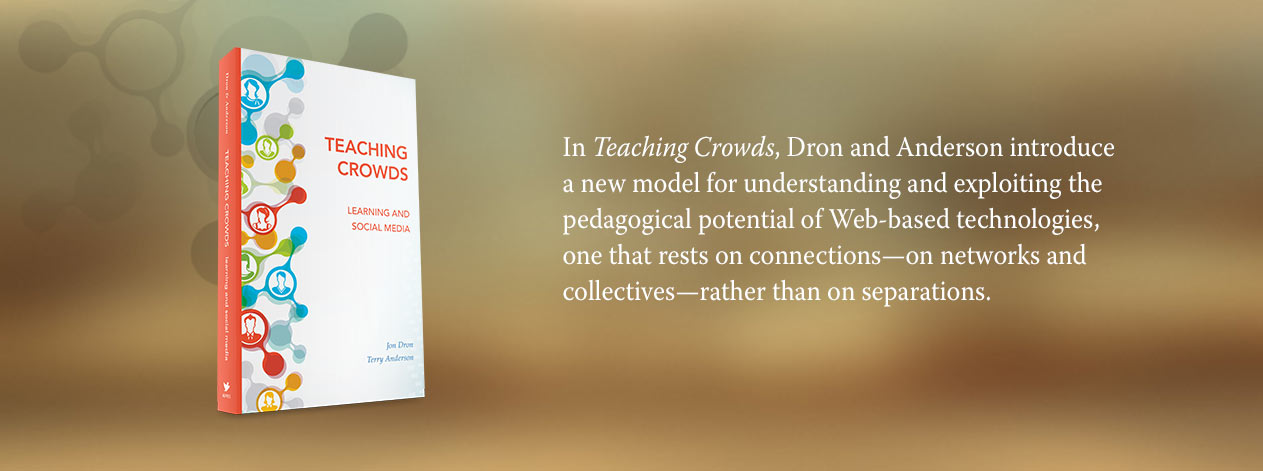Some excellent reflections from the always wonderful Michael Moore on our book, albeit indirectly through the eyes of the book’s reviewer, Jason Oliver (see previous post for a link to that).
We owe a big debt in our book to Michael Moore for providing us with transactional distance theory, which is one of the key lenses we use in our chapters on each of the social forms to help demonstrate what is distinctive about them. Michael raises some excellent points (which, as he observes we might, we agree with), especially about that important balance of control and the value of learners teaching learners. However, although I (Jon) agree, I think that his discussion about the existing work on and insights into the value of groups is exactly that: about groups. One of the biggest ideas that we are trying to promote in the book is that groups are not at all the only fruit and it is exactly the fact that learning with other people can happen without them that makes learning with social media particularly interesting. Most notably, and I think Michael would quite strongly approve, autonomous learning is exactly what networks, sets and collectives support, in ways groups seldom can.
Michael also mentions the counterweight to the trend of social learning as being personalized learning. Personally, I am wary of that, on the whole, for a raft of reasons, the biggest of which is that, much of the time, it does the opposite of providing learner control. The system is in control, not the learners, making decisions on their behalf. Worse, it is often making learning decisions that are precisely the most important thing that learners should be learning to make in the first place. I like Alfie Kohn’s discussion of the distinction between ‘personal’ and ‘personalized’, which provides other reasons to be wary too.
